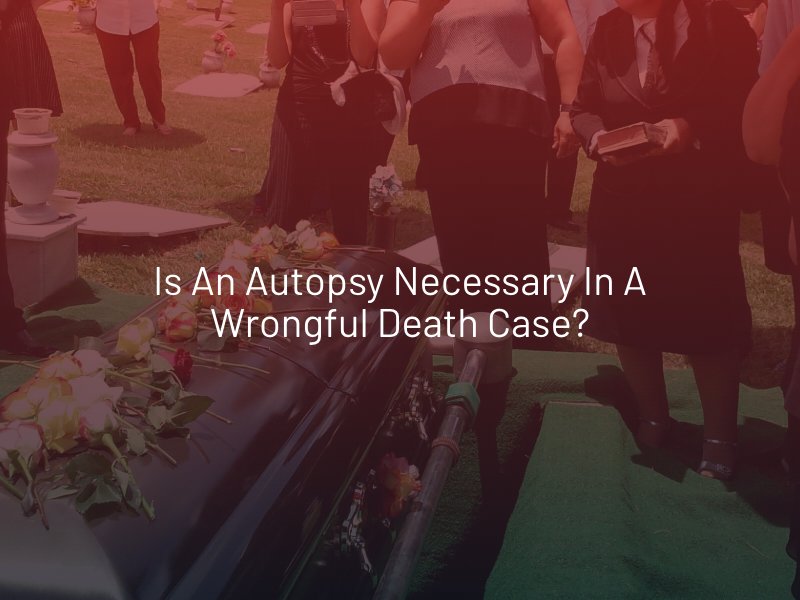Is an Autopsy Necessary in a Wrongful Death Case?
When a loved one dies, it may not always be evident that another party was responsible. An autopsy will do a few different things, but its primary purpose is to prove why the person passed away from a medical and scientific standpoint. This proof can then be used in a wrongful death claim and in court.

When Is an Autopsy Necessary in a Wrongful Death Case?
An autopsy is not a legal requirement in wrongful death cases but may be necessary if the at-fault party denies liability. The autopsy report may be able to remove all doubt and prove a party’s negligence was the cause of a loved one’s death. Autopsy reports often contain crucial information, including the factors that contributed to the person’s death, a summary of the care that preceded the death, a detailed examination of the body, photographs, and a description of tissue samples examined under a microscope.
Although choosing to have an autopsy performed is a highly emotional decision for surviving family members, this evidence could be what links the victim’s death directly to the at-fault party’s actions. This is a legal element known as “causation.” If you cannot prove causation, you will not be able to hold the at-fault party accountable. In some cases, there may be sufficient evidence to prove the other party’s fault without needing an autopsy. A wrongful death attorney can assess your specific case to advise you whether one is necessary.
Who Pays for the Autopsy?
After a wrongful death, due to negligence or intentional harm, the coroner or medical examiner will typically order an autopsy, and the surviving family will not have to pay for it. However, if an autopsy is not requested, but you believe another party caused your loved one’s death, or the insurance company is disputing benefits, you may have to pay for a private autopsy. The fee can cost anywhere between $2,000 to $5,000. Some research facilities or hospitals affiliated with medical schools may perform an autopsy for free if you consent to it being used for medical research or as an educational tool. Another option is to speak to a wrongful death attorney. If they believe you have a case and agree to represent your family, they will often front all of the expenses associated with your claim and will recover reimbursement if you win.
What Happens After the Autopsy?
It can take weeks or even months for an official autopsy report to be completed. How long it takes may depend on the types of tests or screenings required. For example, if a toxicology test is a complex process requiring specially trained analysts. Once the medical examiner’s office has completed it, a copy will be given to the deceased’s next of kin.
The report will either confirm or contradict the death certificate. Either way, if the final report demonstrates that another party was responsible, the family can move ahead with funeral plans and pursue a wrongful death claim.